|
By: Shaunna Harrington, Ph.D. MASCD President Associate Teaching Professor, Northeastern University @shaunna3830 Email Shaunna  This is Teacher Appreciation Week, and I am sending my deepest gratitude to all teachers for their intelligence, creativity, and compassion, and for their extraordinary work during the pandemic. Formally designating time in the first week of May to appreciate teachers is a lovely tradition – I have enjoyed both being on the receiving end as a teacher and the giving end as a parent at my daughters’ schools. But if we want to maintain a strong teaching force and bring excellent people into the teaching profession, we need much more than Teacher Appreciation Week to show teachers they are valued. Only 34% of U.S. teachers believe their profession is valued by society. That is an alarming and heartbreaking statistic. It begs the question -- what would it look like if our society truly valued the teaching profession? Here are some of my suggestions -- Put teachers at the decision-making tables. Make sure they have a strong voice in shaping policies in schools and districts and at the state and federal levels. Dismantle the standardized testing culture, which diminishes the role of teachers. Recognize teachers as the professionals they are and empower them to make decisions about assessment, instruction, and curriculum. Recognize the complexity of teaching, and invest in policies and practices that support teachers’ continual learning. Attend to the social-emotional needs of educators. Even before the pandemic, 6 in 10 teachers rated their job as “highly stressful.” Disrupt narratives that scapegoat teachers and teacher unions for everything that’s not working well in our schools and our society. Pay teachers more. Nationally, new teachers make 68% of what the average new graduate makes. And teachers are making less today than they were in the 1990s (when income is adjusted for inflation). Fully fund our public school system.
0 Comments
We are excited to support Lisa Portadin with a Betty Allen-MASCD Anti-Racist Mini-Grant. Lisa is a literacy coach in the Boston Public Schools, and the grant supported her work with educator Liz MacDonald to design a course for grade 4-5 students using a critical pedagogy for social justice lens. The students will engage in project-based learning to critique instances of educational, social, and racial injustice, investigate an issue that impacts Black and Brown communities, and articulate their own antiracist socially-just solutions. Lisa’s and Liz’s curriculum makes clear that antiracist learning supports the development of traditional academic skills. Students will gain essential core academic knowledge and skills in ELA and social studies, and practice critical organizational and metacognitive skills, while developing their own voices about how to address racial injustices. We can’t wait to hear from Lisa at the end of the school year about the students’ experiences!
We are excited to support the work of Caitlan Sheehan and the Duxbury Public Schools Anti-Racism Task Force with a Betty Allen-MASCD Anti-Racist Mini-Grant. The Anti-Racism Task Force was created this school year with the goal of developing explicitly anti-racist and anti-bias systems, curriculum, and programming in the district. The task force includes K12 teachers, curriculum supervisors, and building and district administrators. The grant will be used to purchase copies of White Kids Growing Up with Privilege in a Racially Divided America, by Margaret A. Hagerman, for the task force members. The book will help the members develop guidelines for how to have “courageous conversations” with white students, and strategies to combat racism in their community. It was particularly appealing to us that the task force includes the full district, because we know how impactful a system approach is for anti-racist and anti-bias work. We look forward to hearing about the work of the Duxbury Anti-Racism Task Force at the end of the school year, and about their plans for the future.
By: Shaunna Harrington, Ph.D. MASCD President Associate Teaching Professor, Northeastern University @shaunna3830 Email Shaunna  Last week, I attended (on zoom) the kick-off campaign to support the passage of the Massachusetts Educator Diversity Act. This act will direct and support the work of making our teacher workforce more racially diverse. Currently, about 43% of students in Massachusetts K12 public schools identify as people of color, yet only 8% of our teachers are people of color. Carlos Santiago, the Commissioner of Higher Education for Massachusetts, shared another alarming statistic during the kick-off event – 25% of Black students in Massachusetts attend a school without a single Black teacher. The teacher racial diversity gap in our Commonwealth is harming our students. Research demonstrates that students of color have greater success in school when they have teachers of color. Teachers of color are more likely to be seen as positive role models, maintain high expectations, use culturally responsive teaching practices, develop trusting relationships with students, and advocate for racial equity. White students also benefit from having teachers of color. We need to recruit more people of color to become teachers in Massachusetts by removing barriers that exclude them from entering the profession. We also need to do a much better job retaining teachers of color. Teachers of color leave the profession at higher rates than white teachers. Many teachers of color report that they do not feel welcomed, valued, and supported by their schools or districts. White educators, who comprise 92% of Massachusetts teachers and superintendents, have a critical role to play in retaining teachers of color. We who are white educators need to actively challenge white cultural norms that downplay the power and the pervasiveness of racism. We need to name and reject racist practices, challenge superficial expressions of diversity and inclusion, and be the antiracist allies our colleagues of color deserve. The Massachusetts Educator Diversity Act would develop a more equitable pathway to teacher license by creating an alternative to MTEL. It also would establish a Center for Strategic Initiatives in DESE to set guidelines for diversity; require all districts to hire a diversity officer who would work to make progress on educator diversity in the district; and establish educator diversity data dashboards, which would keep track of progress (or lack of progress) in diversifying the teaching force in Massachusetts. State Senator Jason Lewis, co-sponsor of the bill along with State Representative Alice Peisch, made clear at last week’s kick-off event that the bill was a “high priority” in the state legislature this year, explaining that it is “part of antiracist and racial justice work.” If you want to be help diversify the Massachusetts teaching profession, you can write your state legislators and urge them to support the Educator Diversity bill, or thank them if they already are supporting it. You also can sign this petition to publicly show your support for the Act. And if you are in a Massachusetts school, you can convene a group of stakeholders to examine the racial diversity of your teachers, and begin the work of addressing how to recruit and also retain more teachers of color. We are excited to support the work of Leslie Means, English Lead Teacher at Melrose Middle School, with a Betty Allen-MASCD Anti-Racist Mini-Grant. Leslie will use the grant to purchase class sets of the book Stamped: Racism, Antiracism & You, by Jason Reynolds and Dr. Ibram X. Kendi, as well as three copies of the audio book, which is narrated by Jason Reynolds. The book is written for young people, and explores the history of racism in the US and features the work of antiracists. The goal Leslie and her colleagues have for the unit is for their eighth graders to better understand the inequities in our society today, and how we got here. We particularly appreciated the Essential Question for the unit built around the book: How will you locate yourself in this work of antiracism discussed in this book? Leslie really spoke to our vision for the grant when she explained, “Our hope is that this unit, crafted with care, can inspire students to be the change-makers we need them to be.” We can’t wait to hear from Leslie at the end of the school year about the students’ experiences during this unit.
We are excited to support the work of Maureen Tumenas, a Technology Integration Specialist in the Hadley Public Schools, with an Isa Zimmerman-MASCD Technology Integration & Innovation Mini-Grant. For the past few years, Maureen and her colleagues have been creating a STEAM lab, and the grant will support this ongoing work. Specifically, the grant will be used to purchase resources that will allow third and fourth grade students to engage in projects using bit boards and micro:bits this spring. The engineering design process is at the core of these projects: students will ask, imagine, plan, create, improve. They will choose a problem in their home or community that they can address with micro:bits. Maureen powerfully explained how the engineering design process helps students develop empathy, learn research skills, and learn to plan, create, test and improve. That’s the kind of exciting learning we want for all students! We can’t wait to hear about the projects the students design.
We are excited to support the work of ELA teacher Amanda Sims at Diman Regional Vocational Technical High School in Fall River in her commitment to engage her students in meaningful conversations about racism and anti-racism. Amanda was awarded a Betty Allen-MASCD Anti-Racist Mini-Grant to purchase classroom sets of Colson Whitehead’s historical novels, The Underground Railroad and Nickel Boys. Through these powerful novels, she will engage her students in connecting the past and the present to better understand racial injustices impacting our society today. We look forward to hearing from Amanda at the end of the school year about her students’ responses to the novels, and about the kinds of conversations and learning the novels sparked.
By: Kevin Leichtman Kevin Leichtman is the author of "The Perfect Ten: Ten Students, Ten Mindsets, One New Definition of Perfection." He also co-authored Teacher's Guide to the Mental edge. He is the co-founder of TLC Educate and the Director of Academic Mindset. He earned a Ph.D. from Florida Atlantic University where he is also an adjunct professor. His studies center on the topics of equity, diversity, teacher burnout, and mindset. Follow Kevin on Twitter @Kevinleichtman  I thought I was an ally. I really had it in my head that I was a genuinely good person. I wasn’t racist. I wasn’t sexist. I couldn’t be any of the bad “isms” because I was just full of empathy and compassion for everyone. How wrong I was… How wrong many of us are, who enjoy saying that we are not racist and do not judge anyone else. One of the most important lessons of my life came through volunteering at my university’s LGBTQA resource center. I had been looking for a research topic relevant to education as I began my journey through graduate school. With the help of knowledgeable professors, I landed on the topic of LGBTQA students and the many challenges they face at all levels of schooling. At the start of my research, I found quickly how little I knew about the privileges cisgender people benefit from or how early and often people who do not fit society’s “gender norms” are marginalized and discriminated against in curriculum, pedagogy, and practice. I wanted to learn more so I went to the school’s Safe Zone training. Sponsored by my university’s resource center, the training was an in-depth look at many of these issues that LGBTQA students face and what I as an ally could do to work against the oppressive structures that push against them. The training made me feel well-equipped as I dove further into research. I won’t lie… It also made me feel very good about myself. What a great ally I was, doing extra trainings just to help a group of people outside of my own experience as a straight, white male. Following the high of learning and engaging in what I thought was advocacy, I decided to go one step further and volunteer at the center for a couple of semesters. It was a genuinely enjoyable time, sitting in the office to field phone calls and guide students to helpful resources. I was surrounded by a LGBTQA community who allowed me to fit in to their space. They respected me and helped me to grow, taking an interest in my research and openly providing their real-life experiences. Then it happened. I had to put my money where my mouth had been from the start of my graduate schooling.It was a simple task. The resource manager asked me to go by myself to pass out flyers for a Gay Pride event on campus. I grabbed the flyers and began walking towards the busiest area of campus. I suddenly realized that I was about to pass out Gay Pride flyers to the student body. They would think I was gay!  In that moment, every negative thought raced through my mind. What if I saw a cute girl and she thought I was gay and that ruined my chances? What if somebody called me a really insulting name? What if people got offended by me? That moment taught me more than any classroom had. Up until that moment, I was just performing. I was saying things that would get me recognized as an ally and a “good person.” But I never had to mean it or back it up before. I faced my fear and the student body, passing out flyers for over an hour. I tried not to care what they thought. I tried to ignore the eyes rolling or the heads shaking as they pushed the flier away from themselves. I tried to pretend like I didn’t hear the words they muttered as they walked by. Walking back into the LGBTQA Resource Center, I shared my experience and said at least a hundred apologies. A supportive staff room member sat me down to explain that the feelings I had today were the feelings and situations they deal with on a daily basis. They taught me that allyship was an action and not just words, no matter how good the words were. Performative allyship is the trap that holds many of us back from actually being helpful. We use our words to express a support for a marginalized group that we fail to understand, work with, or walk with. We take the accolades and respect for displaying a surface level of empathy, just covering a layer of ignorance and an unwillingness to be a part of the movement we are publicly touting. I knew it when I walked out with those flyers. Everything I had said up to that point meant nothing. How could I support the gay community and also be terrified of someone thinking of me as being gay? If you believe you are a non-racist and you don’t judge or discriminate against anybody, ask yourself the difficult questions. Would you walk around a college campus declaring that you are gay? Would you don a hijab and walk from a mosque through a large city? Would you take a nighttime stroll in a highly policed, mostly white neighborhood with a group of Black men? Those of us who benefit from the privileges of race, color, gender, sexual orientation, ability, and many other indicators of our societal norms need to be willing to step into the shoes of those who are marginalized. We will never understand an oppression that we do not face. We will never see the discrimination that glances past issues that we do not have to think about on a daily basis. It is time for us to listen, learn, and ACT with those in our country who are seeking voice, representation, and equity. We walk together or we will fall apart, one by one. We are excited to support Randolph Public School kindergarten teacher Amy Dossantos create an afterschool multicultural club for students across all four Randolph elementary schools with a Betty Allen-MASCD Anti-Racist Mini-Grant. We were impressed with Amy’s discussion of the importance of engaging young children in learning about cultural differences. She noted, “Research shows children as early as pre-school age notice, discuss, question and draw conclusions about skin color.” Her response is to provide learning experiences where young children can explore race and culture, affirm differences, and develop empathy. The club will be held virtually, due to Covid restrictions, and Amy has innovative ways to engage the students. She will create her own recorded lessons and engage the students in dialogue via Flipgrid. The grant will be used to purchase a subscription to “Little Global Citizen,” stamps for the pen pal program that is part of the club, and craft supplies, including multicultural crayons and paper. We look forward to hearing from Amy at the end of the year about the students’ experiences in the multicultural club.
By: Shaunna Harrington, Ph.D. MASCD President Associate Teaching Professor, Northeastern University @shaunna3830 Email Shaunna  After a year of teaching and learning during a pandemic that has taken the lives of more than half a million Americans, devastated the economic security of millions more, and challenged the social fabric and mental health of nearly everyone, it makes no sense to administer MCAS this spring. But even after the pandemic ends, we need a different system for assessing the learning of our students in the Commonwealth. Commissioner Jeff C. Riley, in his June 2019 report to the Board of Elementary and Secondary Education, “Our Way Forward,” acknowledged that in too many cases, MCAS has led to a narrowing of the curriculum and a focus on superficial coverage. He stated the result has been low levels of student engagement, particularly for low income students and students of color who are more likely to be in schools that emphasize test preparation. Riley wants our schools to focus on deeper learning, which involves asking students “to create, to invent, and to combine and apply concepts in new ways,” and to “assume increasing levels of responsibility.” In schools focused on deeper learning, he explained, there is a higher level of student engagement, which is critical for making our education system more equitable. Riley did not call for the end of MCAS, but he suggested the need for something different, stating, “we must develop statewide models of engaging tasks – activities that ask students to master content knowledge and life skills through the creation of meaningful, original work products.” That work is already happening. The Massachusetts Consortium for Innovative Education Assessment (MCIEA), which is comprised of eight school districts, has been creating valid and reliable performance assessments and rubrics that are aligned with the Massachusetts Curriculum Frameworks. In the performance assessments, students must demonstrate their learning by applying their knowledge and skills to address realistic challenges. Many teachers use performance assessments in their classroom-based assessment system, but MCIEA is creating performance tasks and rubrics that are used across districts, which provides a way to assess students across the state – a viable alternative to MCAS. Teachers and other school-based educators must play a key role in the new assessment system we create in our Commonwealth. MCAS removes them from that role, and we have been left with an assessment system that cannot fulfill its most important function, which is to improve student learning (not just measure it). Teachers in the MCIEA consortium are not passive recipients of performance tasks created by “outside experts”. They learn how to design, validate and implement performance assessments and how to reliably score student work. (Take a look at the task bank they have created.) We have learned from this pandemic that our education system can make big changes, very quickly. So why are we holding on to a statewide assessment system we know is not working? All my best, Shaunna |
|
Photo from Mike Kniec

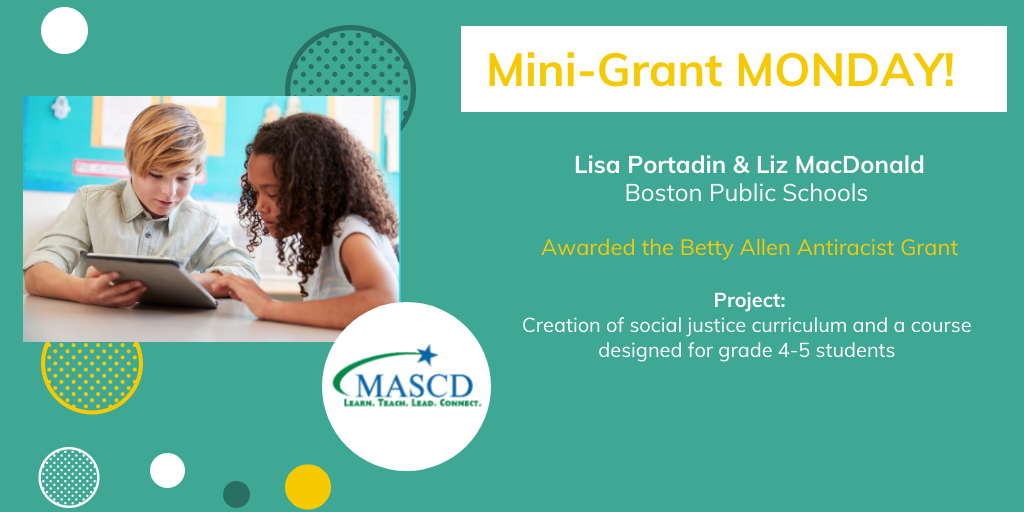
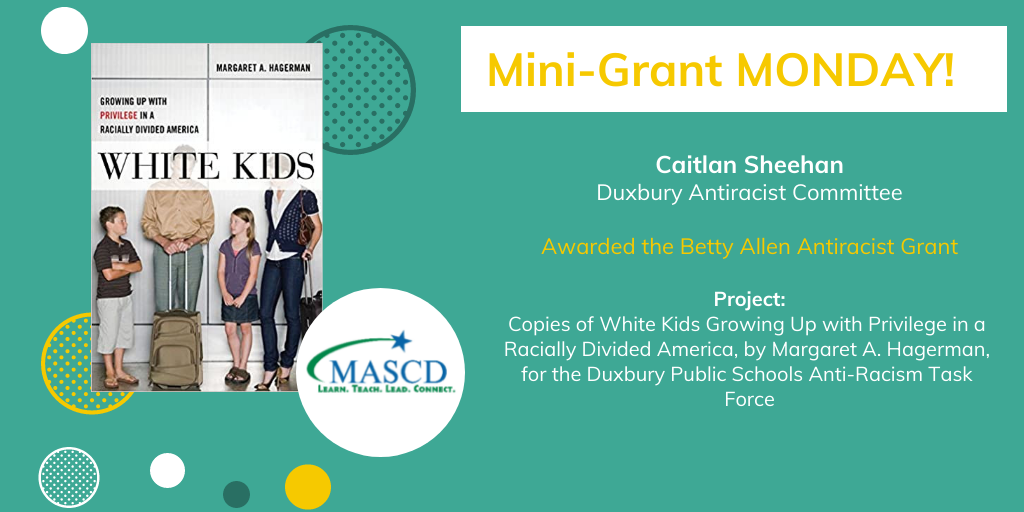
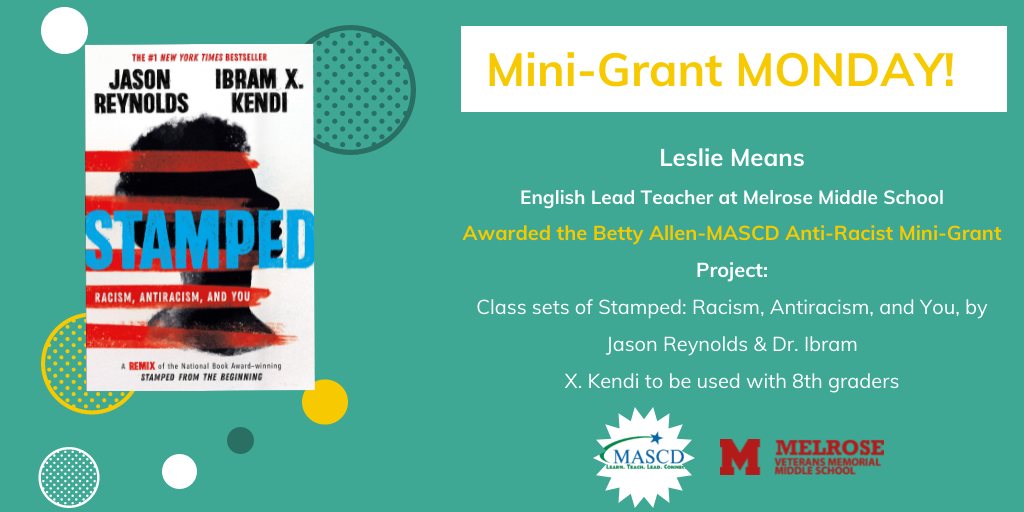
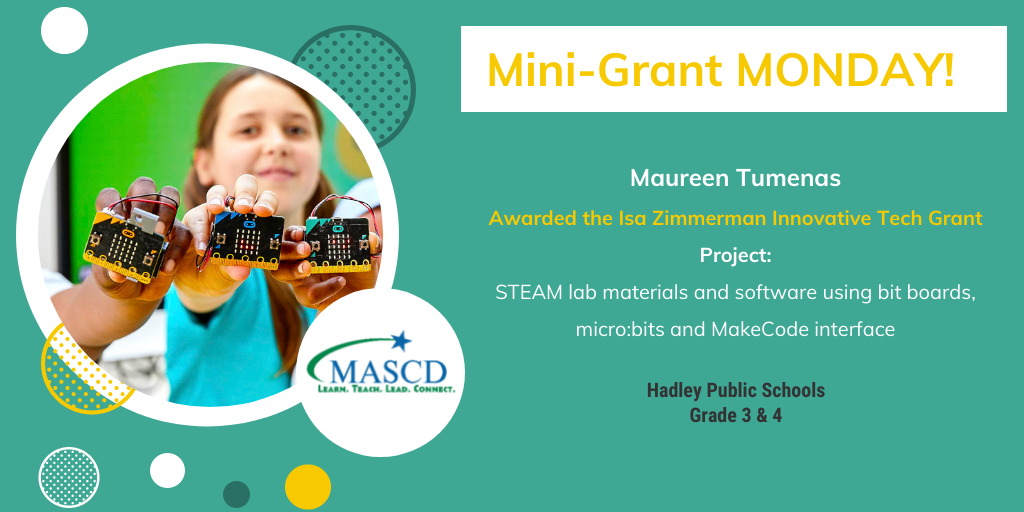
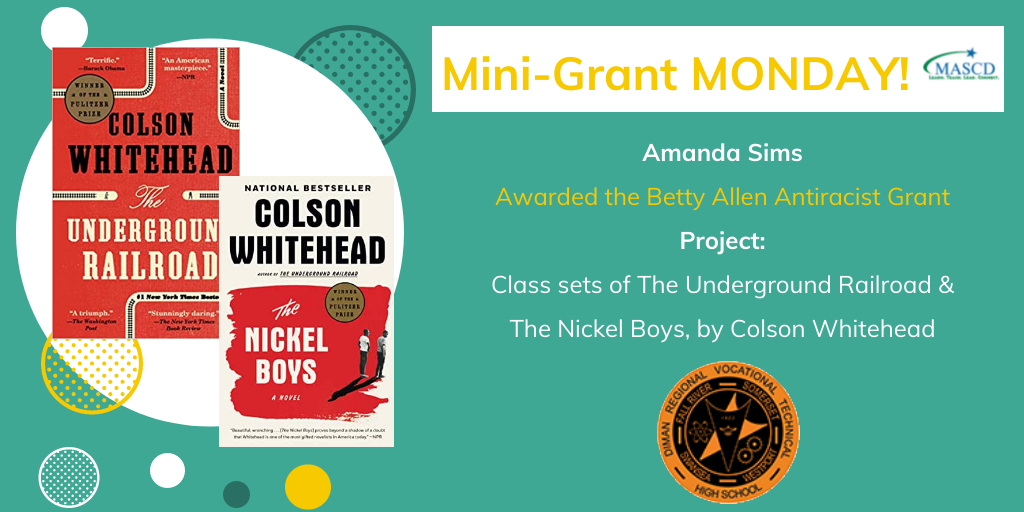
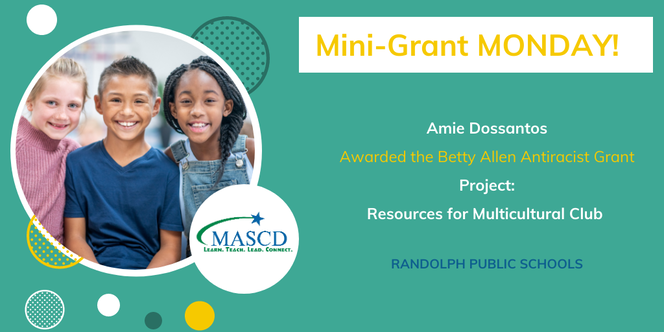
 RSS Feed
RSS Feed